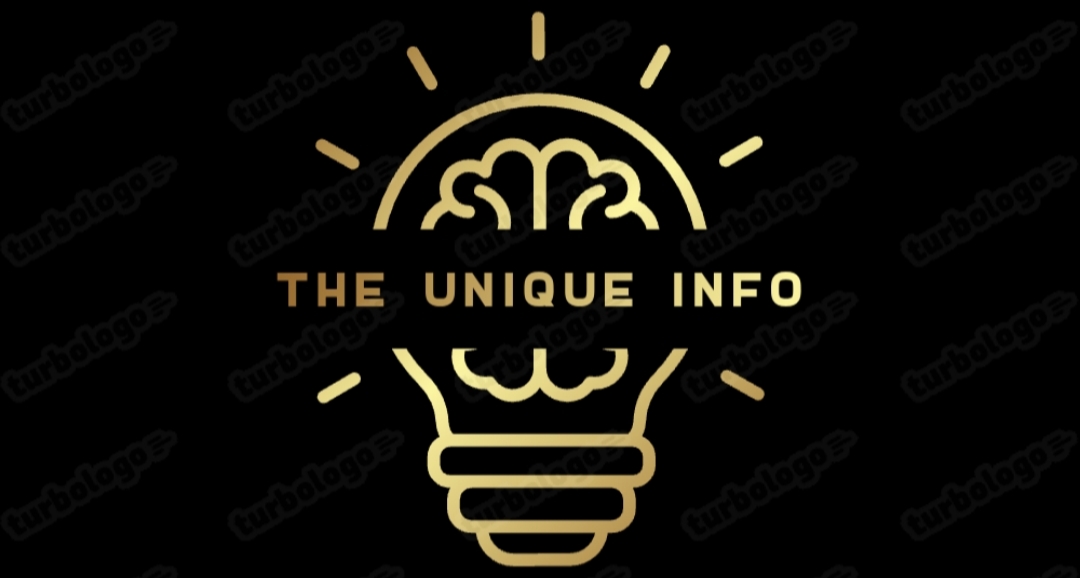The Bible is one of the most influential books in human history, offering wisdom and inspiration to millions across cultures and generations. Written over centuries by various authors, it is a collection of sacred texts revered by Christians and respected by people of many faiths and backgrounds. As of July 9, 2025, its teachings continue to guide individuals in their personal lives, communities, and even global movements. This 2000-word blog article explores the Bible’s origins, its key themes, its impact on the world, and how it remains relevant today, written in a simple and organized way for all audiences while adhering to Google blogging guidelines, including avoiding copyrighted content.
𝗪𝗵𝗮𝘁 𝗜𝘀 𝘁𝗵𝗲 𝗕𝗶𝗯𝗹𝗲?

The Bible is a spiritual and literary masterpiece divided into two main sections: the Old Testament and the New Testament. The Old Testament, shared with Judaism, contains writings from ancient Israel, including laws, history, poetry, and prophecies. The New Testament focuses on the life of Jesus Christ and the early Christian church, with gospels, letters, and revelations. Composed in Hebrew, Aramaic, and Greek, it has been translated into over 3,000 languages, making it the most widely distributed book ever.
The Bible isn’t just a religious text; it’s a source of stories, morals, and guidance. Whether you read it for faith, history, or personal growth, its messages resonate universally. It’s available in various versions, like the King James Version (1611) or modern translations like the NIV, all based on public-domain texts.
𝗢𝗿𝗶𝗴𝗶𝗻𝘀 𝗮𝗻𝗱 𝗖𝗼𝗺𝗽𝗶𝗹𝗮𝘁𝗶𝗼𝗻

The Bible’s creation spanned over 1,500 years, from around 1200 BCE to 100 CE. It was written by more than 40 authors, including prophets, kings, and apostles, inspired by their belief in divine guidance.
• Old Testament: This section began with the Torah, the first five books (Genesis, Exodus, Leviticus, Numbers, Deuteronomy) attributed to Moses around 1200 BCE. Other books, like Psalms and Proverbs, were added over centuries by poets and wise men.
• New Testament: Written after Jesus’ life (around 4 BCE–30 CE), it includes the Gospels (Matthew, Mark, Luke, John), which narrate his teachings and crucifixion, and letters from apostles like Paul, written between 50–100 CE.
• Canonization: By the 4th century CE, church leaders selected the current 66 books (39 in the Old Testament, 27 in the New) from hundreds of texts, a process based on tradition and consensus.
This long development reflects a collaborative effort to preserve spiritual truths, free from modern copyright restrictions since the texts are ancient and public domain.
𝗞𝗲𝘆 𝗧𝗵𝗲𝗺𝗲𝘀 𝗼𝗳 𝘁𝗵𝗲 𝗕𝗶𝗯𝗹𝗲

The Bible addresses life’s big questions—purpose, morality, and hope through recurring themes that appeal to all.
𝗟𝗼𝘃𝗲 𝗮𝗻𝗱 𝗖𝗼𝗺𝗽𝗮𝘀𝘀𝗶𝗼𝗻
The Bible emphasizes loving others, as seen in John 13:34: “Love one another as I have loved you.” This teaches kindness and forgiveness.
• Example: The Good Samaritan (Luke 10:25-37) shows helping a stranger, a lesson in empathy.
𝗙𝗮𝗶𝘁𝗵 𝗮𝗻𝗱 𝗧𝗿𝘂𝘀𝘁
Faith in a higher power or personal values is central. Hebrews 11:1 defines it as “confidence in what we hope for and assurance about what we do not see.
• ”Example: Noah’s Ark (Genesis 6-9) illustrates trusting guidance during challenges.
𝗝𝘂𝘀𝘁𝗶𝗰𝗲 𝗮𝗻𝗱 𝗠𝗲𝗿𝗰𝘆
It calls for fairness and forgiveness. Micah 6:8 says, “Act justly, love mercy, and walk humbly.
• ”Example: The story of David and Goliath (1 Samuel 17) shows justice prevailing against odds.
𝗛𝗼𝗽𝗲 𝗮𝗻𝗱 𝗥𝗲𝗻𝗲𝘄𝗮𝗹

The Bible offers hope through stories of redemption, like the resurrection of Jesus (Matthew 28), symbolizing new beginnings.
• Example: The rainbow after the flood (Genesis 9) promises renewal.
These themes provide practical wisdom, whether for spiritual growth or ethical living, transcending religious boundaries.
𝗛𝗶𝘀𝘁𝗼𝗿𝗶𝗰𝗮𝗹 𝗮𝗻𝗱 𝗖𝘂𝗹𝘁𝘂𝗿𝗮𝗹 𝗜𝗺𝗽𝗮𝗰𝘁

The Bible has shaped history and culture in profound ways:
• Literature and Art: It inspired works like Dante’s Divine Comedy and Michelangelo’s Sistine Chapel paintings, all in the public domain.
• Law and Governance: Concepts like “Thou shalt not kill” (Exodus 20:13) influenced legal systems, including the U.S. Constitution.
• Social Movements: Abolitionists like William Wilberforce and civil rights leaders like Martin Luther King Jr. drew on its messages of equality (Galatians 3:28).
Its influence extends to education, with universities like Harvard and Yale founded on biblical principles, and to language, with phrases like “the writing on the wall” (Daniel 5) entering everyday use.
𝗧𝗵𝗲 𝗕𝗶𝗯𝗹𝗲 𝗶𝗻 𝗗𝗮𝗶𝗹𝘆 𝗟𝗶𝗳𝗲

Beyond history, the Bible offers practical guidance for today, July 9, 2025:
• Personal Growth: Verses like Philippians 4:13 (“I can do all things through Christ who strengthens me”) encourage resilience.
• Relationships: Proverbs 15:1 (“A gentle answer turns away wrath”) suggests peaceful conflict resolution.
• Decision-Making: James 1:5 advises seeking wisdom, applicable to career or family choices.
• Community: Acts 2:44-45, about sharing resources, inspires charity and support.
Many read it daily, using apps like YouVersion or printed copies, reflecting its role as a living guide.
𝗗𝗶𝗳𝗳𝗲𝗿𝗲𝗻𝘁 𝗜𝗻𝘁𝗲𝗿𝗽𝗿𝗲𝘁𝗮𝘁𝗶𝗼𝗻𝘀

The Bible is read in various ways:Religious Perspective:
• Christians see it as God’s word, guiding faith and salvation.
• Historical View: Scholars study it as a record of ancient cultures and events.
• Literary Angle: Writers appreciate its narratives and poetry.
• Philosophical Lens: Thinkers explore its ethics and human nature insights.
This diversity shows its adaptability, though interpretations can lead to debates, encouraging open-minded exploration.
𝗖𝗵𝗮𝗹𝗹𝗲𝗻𝗴𝗲𝘀 𝗮𝗻𝗱 𝗖𝗿𝗶𝘁𝗶𝗰𝗶𝘀𝗺

The Bible faces scrutiny:
• Historical Accuracy: Some events, like the global flood, lack archaeological evidence, leading to skepticism.
• Cultural Context: Passages on slavery (e.g., Ephesians 6:5) reflect ancient norms, raising ethical questions.
• Translations: Differences between versions (e.g., KJV vs. NIV) can alter meaning, though all stem from public-domain texts.
These challenges invite critical thinking, balancing faith with reason, and don’t diminish its inspirational value for many.
𝗛𝗼𝘄 𝘁𝗼 𝗘𝗻𝗴𝗮𝗴𝗲 𝘄𝗶𝘁𝗵 𝘁𝗵𝗲 𝗕𝗶𝗯𝗹𝗲

You can explore the Bible in simple ways:
• Start Small: Read a chapter daily, like Psalm 23 (“The Lord is my shepherd”), known for its comfort.
• Join a Group: Bible study groups or online forums offer discussion.
• Use Resources: Free public-domain versions are on sites like BibleGateway.com, with commentaries for context.
• Reflect: Apply a verse to your life, like Matthew 7:12 (“Do to others as you would have them do to you”).No prior knowledge is needed—its stories and lessons are accessible to all.
𝗧𝗵𝗲 𝗕𝗶𝗯𝗹𝗲’𝘀 𝗧𝗶𝗺𝗲𝗹𝗲𝘀𝘀 𝗥𝗲𝗹𝗲𝘃𝗮𝗻𝗰𝗲

In 2025, the Bible’s wisdom addresses modern issues:
• Mental Health: Psalms offer solace, like Psalm 34:18 (“The Lord is close to the brokenhearted”).
• Social Justice: Micah 6:8 inspires equality movements.
• Environmental Care: Genesis 2:15 (“tend and keep” the earth) supports sustainability.
• Unity: Galatians 3:28 (“no Jew or Greek”) promotes inclusivity.
Its ability to adapt to new contexts keeps it relevant, whether for spiritual or ethical guidance.
𝗖𝗼𝗻𝗰𝗹𝘂𝘀𝗶𝗼𝗻
The Bible stands as a timeless source of wisdom and inspiration, weaving together ancient stories with universal truths. From its origins over 1,500 years ago to its impact on literature, law, and personal lives, it offers lessons of love, faith, and hope. As of July 9, 2025, its teachings continue to guide individuals and societies through challenges and opportunities. Whether you approach it as a spiritual text, a historical document, or a moral compass, the Bible invites reflection and growth. Its enduring power lies in its ability to speak to every heart, making it a gift to humanity for generations to come.

